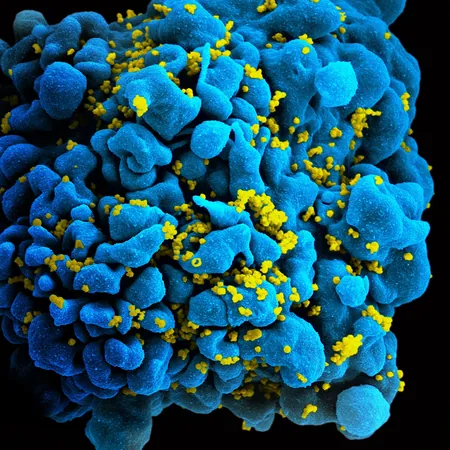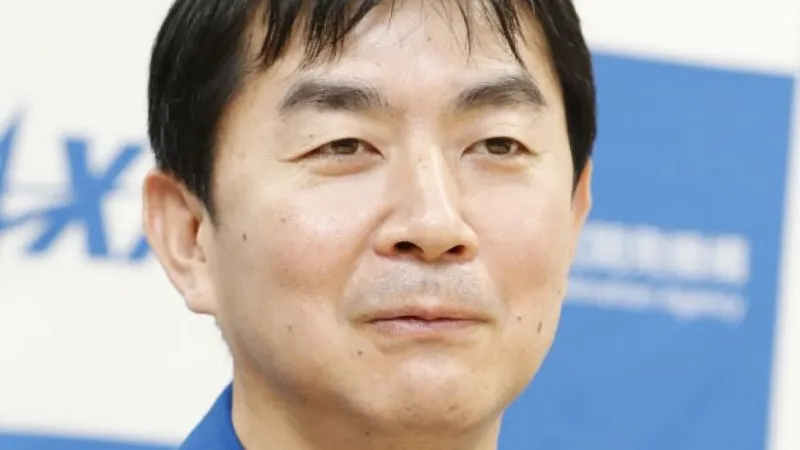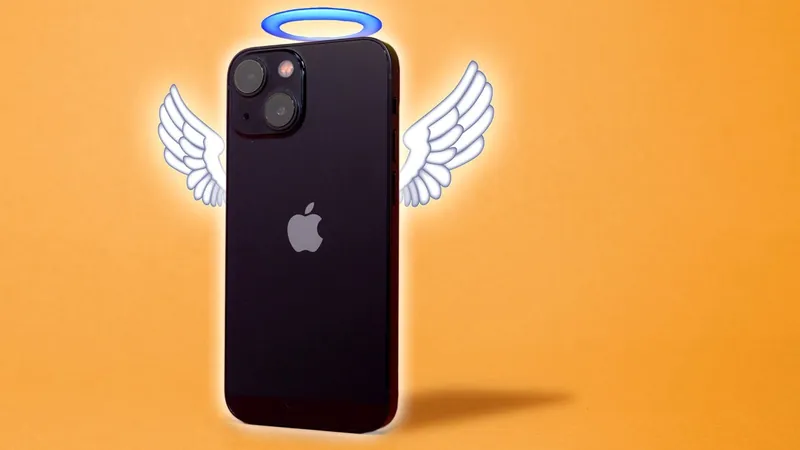
Revolutionary HIV Breakthrough: New Antibody Therapy Offers Hope for Long-lasting Control Without Daily Meds!
2025-03-28
Author: Daniel
Introduction
For over forty years, the world has grappled with HIV, learning to manage expectations as medical advancements improve treatment but fail to eliminate the virus entirely. However, recent breakthroughs may shift this narrative dramatically! Results from a groundbreaking clinical trial reveal that a novel approach using broadly neutralizing antibodies (bNAbs) could offer the next best alternative: long-term control of HIV without the need for daily medication.
Background of the Breakthrough
This promising research, spearheaded by a coalition of experts from Rockefeller University, Imperial College London, and the University of Oxford, was unveiled at the esteemed Conference on Retroviruses and Opportunistic Infections (CROI 2025) in San Francisco, held from March 9 to 12.
Trial Overview
Participants in the trial received a one-time treatment consisting of two bNAbs instead of their usual daily antiretroviral therapy. Astonishingly, many succeeded in keeping the HIV virus at undetectable levels for as long as 20 weeks post-treatment. For those who maintained this viral suppression, the opportunity to receive another dose of bNAbs was available after 20 weeks.
Results
As follow-up assessments continued, the results illustrated even greater optimism. By 48 weeks, half of the treated participants remained undetectable, and by 72 weeks—nearly one year post-treatment—one-third were still in the same remarkable status. While a complete cure for HIV is still elusive, these findings raise the intriguing prospect of achieving remission or treatment-free long-term viral control.
Expert Insights
Leading researcher Michel Nussenzweig, Professor at Rockefeller University, points out a significant roadblock in current HIV therapies: they cannot target the virus' 'reservoir,' which is the underlying reason for the inability to cure it. "Our trial has shown for the first time that long-acting bNAbs significantly reduced the size of this reservoir, even achieving undetectable levels in some cases," stated fellow researcher Marina Caskey.
Current Treatment Landscape
Presently, HIV-positive individuals must rely on daily antiretroviral medications to keep their viral loads undetectable. When treatment ceases, the virus typically resurges rapidly. The RIO trial, driven by Sarah Fidler at Imperial College and involving 68 participants, represents a noteworthy step toward a state of HIV remission—a scenario where patients can enjoy robust health for extended periods without ongoing medication.
Building on Previous Research
This pivotal trial builds on earlier research indicating the effectiveness of bNAbs, which was conducted by Caskey and Nussenzweig and published in the journal Nature in 2022, showing prolonged viral suppression in patients receiving these antibodies over five months.
Significant Outcomes
In a randomized study, those treated with bNAbs were 91% less likely to experience a resurgence of the virus compared to those on a placebo after stopping their daily medications. One year later, astonishingly, one in three participants remained undetectable after their last treatment.
Conclusion and Future Directions
This marks a historic milestone, showcasing the first instance of immune-based therapy attaining sustained viral control across multiple participants, effectively allowing them to stop daily medications for over a year,” asserts Fidler.
As the study continues, both Caskey and Nussenzweig remain hopeful, suggesting that a potential cure may be inching closer to reality. Their research indicates that bNAbs can play a direct role in reducing the persistent HIV reservoir, which is essential for a true cure. Nussenzweig emphasizes, "Since eliminating the reservoir is crucial for curing HIV, these groundbreaking findings represent a significant leap forward in our fight against this virus."
Stay tuned as this thrilling story develops—could this be the turning point in the quest for HIV treatment and potential cure?



 Brasil (PT)
Brasil (PT)
 Canada (EN)
Canada (EN)
 Chile (ES)
Chile (ES)
 Česko (CS)
Česko (CS)
 대한민국 (KO)
대한민국 (KO)
 España (ES)
España (ES)
 France (FR)
France (FR)
 Hong Kong (EN)
Hong Kong (EN)
 Italia (IT)
Italia (IT)
 日本 (JA)
日本 (JA)
 Magyarország (HU)
Magyarország (HU)
 Norge (NO)
Norge (NO)
 Polska (PL)
Polska (PL)
 Schweiz (DE)
Schweiz (DE)
 Singapore (EN)
Singapore (EN)
 Sverige (SV)
Sverige (SV)
 Suomi (FI)
Suomi (FI)
 Türkiye (TR)
Türkiye (TR)
 الإمارات العربية المتحدة (AR)
الإمارات العربية المتحدة (AR)